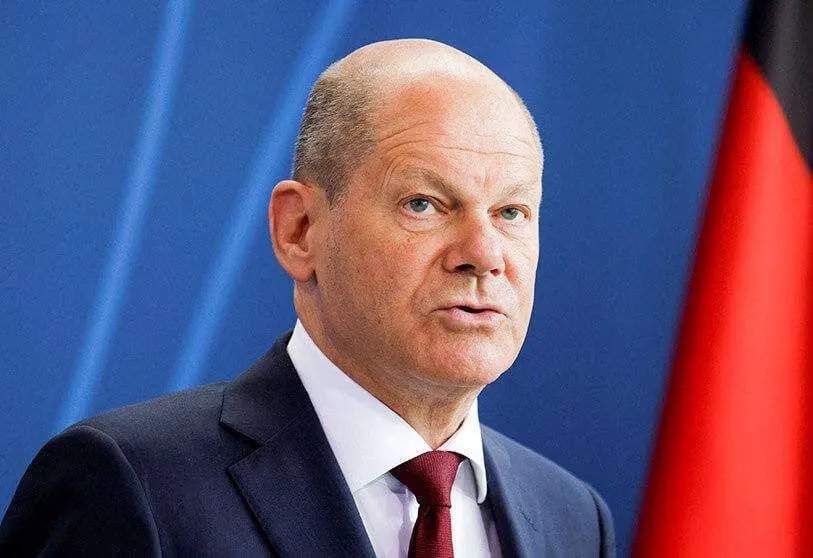Olaf Scholz will travel to the Gulf in search of alternatives to Russian gas

After several months of threats, September began with the news that the Russian gas company Gazprom was indefinitely shutting off supplies to Germany - and, consequently, to part of the rest of the EU - through the Nord Stream 1 pipeline. Now, in a race against time in the face of an approaching winter with reduced gas reserves, Berlin is intensifying its efforts to find new energy partners to replace Russian hydrocarbon supplies. Both in the short term, with a view to the coming months, and in the medium and long term, in order to reduce German and European energy dependence and vulnerability.
Against this backdrop, German Chancellor Olaf Scholz has announced a two-day official visit to the Gulf region. Specifically, during the weekend, the German leader - accompanied by a 'top-level business delegation', as government spokesman Steffen Heepstrait said at a press conference - will travel to Saudi Arabia, the world's second largest oil producer after the US, Qatar, the fifth largest gas producer, and the United Arab Emirates, also a key player in the hydrocarbon market.

The first stop on Scholz's tour is expected to be in the Saudi Arabian capital of Riyadh. There, the German leader will meet - for the first time in person since the beginning of his mandate - with Saudi King Salman bin Abdulaziz Al Saud, "if his health permits", and with the Crown Prince and 'de facto' leader of the Kingdom, Mohammed bin Salman. Scholz "attaches great importance to the outcome of these talks", diplomatic sources at the German embassy in Riyadh appeared to explain to Al Arab.
Diplomatic relations between Berlin and Riyadh have been strained since the murder of Saudi journalist Jamal Khashoggi at the end of 2018 in the Wahhabi Kingdom's Consulate in Istanbul (Turkey), which led to a rift between the two countries, and Germany's decision to ban arms exports to all parties involved in the war in Yemen (including Saudi Arabia). These are issues that, in Heepstrait's words, "will certainly be addressed in the talks".

In addition, "the energy crisis, the repercussions of the war in Ukraine, [...], the Iranian dossier and the agenda of the next G20 summit, scheduled for November on the Indonesian island of Bali" - said the diplomatic source consulted by Al Arab - will also be present in an agenda of discussions that aims to "correct the course of relations between the two countries".
For his part, Saudi Foreign Minister Prince Faisal Bin Farhan Al Saud has been quick to praise the historic German-Saudi ties in the fields of economy, investment and trade. Cooperation on issues related to the Saudi 'Vision 2030' programme seems to represent a major joint investment opportunity for the Riyadh authorities. Especially in the industrial, cultural, renewable energy and military cooperation sectors.

Scholz's diplomatic tour of the Gulf will come to an end on Sunday after separate meetings with Emirati President Mohamed bin Zayed Al Nahayan and Qatari Emir Sheikh Tamim bin Hamad Al Thani in the morning and afternoon respectively. After which he is expected to return to Germany.
According to German Economy Minister Robert Habeck, during Scholz's stay in the Gulf, Berlin is seeking to conclude several contracts for the import of liquefied natural gas (LNG) to replace Russian supplies - which before the war in Ukraine accounted for 55 per cent of German demand. Specifically, with its Emirati counterpart, which has already this month started sending green hydrogen energy tests to the European country, according to the German economy ministry, in order to "create a hydrogen value chain between Germany and the UAE". "This test delivery lays an important foundation for hydrogen imports in the medium term, which will also be environmentally friendly."

Talks with Doha, meanwhile, appear to have stalled for several weeks now, despite Berlin's efforts to negotiate with one of the world's leading LNG exporters since the start of Russia's "special military operation" in Ukraine in February. These efforts led Habeck to visit the country in March. Qatar plays a complicated role in setting prices and the duration of possible deals, several German government officials have criticised, but this has not excluded the small Gulf state from Scholz's tour.
The fact is that heavy energy dependence - no longer just German, but European - in terms of sources, suppliers and import routes has led Europe to become highly vulnerable to global conflicts and imbalances. Now, technical and infrastructural complications in receiving foreign gas make it difficult to find short-term supplies to cope with a winter without gas.








